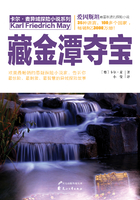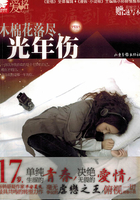Part 2
In the autumn of the year, Darkness and Night were creeping up to the highest ridges of the Alps.
It was vintage time in the valleys on the Swiss side of the Pass of the Great Saint Bernard, and along the banks of the Lake of Geneva.
The air there was charged with the scent of gathered grapes. Baskets, troughs, and tubs of grapes stood in the dim village doorways, stopped the steep and narrow village streets, and had been carrying all day along the roads and lanes. Grapes, split and crushed under foot, lay about everywhere. The child carried in a sling by the laden peasant woman toiling home, was quieted with picked-up grapes; the idiot sunning his big goitre under the leaves of the wooden chalet by the way to the Waterfall, sat Munching grapes; the breath of the cows and goats was redolent of leaves and stalks of grapes; the company in every little cabaret were eating, drinking, talking grapes. A pity that no ripe touch of this generous abundance could be given to the thin, hard, stony wine, which after all was made from the grapes!
The air had been warm and transparent through the whole of the bright day. Shining metal spires and church-roofs, distant and rarely seen, had sparkled in the view; and the snowy mountain-tops had been so clear that unaccustomed eyes, cancelling the intervening country, and slighting their rugged heights for something fabulous, would have measured them as within a few hours easy reach. Mountain-peaks of great celebrity in the valleys, whence no trace of their existence was visible sometimes for months together, had been since morning plain and near in the blue sky. And now, when it was dark below, though they seemed solemnly to recede, like spectres who were going to vanish, as the red dye of the sunset faded out of them and left them coldly white, they were yet distinctly defined in their loneliness above the mists and shadows. Seen from these solitudes, and from the Pass of the Great Saint Bernard, which was one of them, the ascending Night came up the mountain like a rising water. When it at last rose to the walls of the convent of the Great Saint Bernard, it was as if that weather-beaten structure were another Ark, and floated on the shadowy waves.
Darkness, outstripping some visitors on mules, had risen thus to the rough convent walls, when those travellers were yet climbing the mountain. As the heat of the glowing day when they had stopped to drink at the streams of melted ice and snow, was changed to the searching cold of the frosty rarefied night air at a great height, so the fresh beauty of the lower journey had yielded to barrenness and desolation. A craggy track, up which the mules in single file scrambled and turned from block to block, as though they were ascending the broken staircase of a gigantic ruin, was their way now. No trees were to be seen, nor any vegetable growth save a poor brown scrubby moss, freezing in the chinks of rock. Blackened skeleton arms of wood by the wayside pointed upward to the convent as if the ghosts of former travellers overwhelmed by the snow haunted the scene of their distress. Icicle-hung caves and cellars built for refuges from sudden storms, were like so many whispers of the perils of the place; never-resting wreaths and mazes of mist wandered about, hunted by a moaning wind; and snow, the besetting danger of the mountain, against which all its defences were taken, drifted sharply down.
The file of mules, jaded by their day's work, turned and wound slowly up the deep ascent; the foremost led by a guide on foot, in his broad-brimmed hat and round jacket, carrying a mountain staff or two upon his shoulder, with whom another guide conversed. There was no speaking among the string of riders. The sharp cold, the fatigue of the journey, and a new sensation of a catching in the breath, partly as if they had just emerged from very clear crisp water, and partly as if they had been sobbing, kept them silent.
At length, a light on the summit of the rocky staircase gleamed through the snow and mist. The guides called to the mules, the mules pricked up their drooping heads, the travellers' tongues were loosened, and in a sudden burst of slipping, climbing, jingling, clinking, and talking, they arrived at the convent door.
Other mules had arrived not long before, some with peasant riders and some with goods, and had trodden the snow about the door into a pool of mud. Riding-saddles and bridles, pack-saddles and strings of bells, mules and men, lanterns, torches, sacks, provender, barrels, cheeses, kegs of honey and butter, straw bundles and packages of many shapes, were crowded confusedly together in this thawed quagmire and about the steps. Up here in the clouds, everything was seen through cloud, and seemed dissolving into cloud. The breath of the men was cloud, the breath of the mules was cloud, the lights were encircled by cloud, speakers close at hand were not seen for cloud, though their voices and all other sounds were surprisingly clear. Of the cloudy line of mules hastily tied to rings in the wall, one would bite another, or kick another, and then the whole mist would be disturbed: with men diving into it, and cries of men and beasts coming out of it, and no bystander discerning what was wrong. In the midst of this, the great stable of the convent, occupying the basement story and entered by the basement door, outside which all the disorder was, poured forth its contribution of cloud, as if the whole rugged edifice were filled with nothing else, and would collapse as soon as it had emptied itself, leaving the snow to fall upon the bare mountain summit.
While all this noise and hurry were rife among the living travellers, there, too, silently assembled in a grated house half a dozen paces removed, with the same cloud enfolding them and the same snow flakes drifting in upon them, were the dead travellers found upon the mountain. The mother, storm-belated many winters ago, still standing in the corner with her baby at her breast; the man who had frozen with his arm raised to his mouth in fear or hunger, still pressing it with his dry lips after years and years. An awful company, mysteriously come together! A wild destiny for that mother to have foreseen! 'Surrounded by so many and such companions upon whom I never looked, and never shall look, I and my child will dwell together inseparable, on the Great Saint Bernard, outlasting generations who will come to see us, and will never know our name, or one word of our story but the end.'
The living travellers thought little or nothing of the dead just then. They thought much more of alighting at the convent door, and warming themselves at the convent fire. Disengaged from the turmoil, which was already calming down as the crowd of mules began to be bestowed in the stable, they hurried shivering up the steps and into the building. There was a smell within, coming up from the floor, of tethered beasts, like the smell of a menagerie of wild animals. There were strong arched galleries within, huge stone piers, great staircases, and thick walls pierced with small sunken windows-fortifications against the mountain storms, as if they had been human enemies. There were gloomy vaulted sleeping-rooms within, intensely cold, but clean and hospitably prepared for guests. Finally, there was a parlour for guests to sit in and sup in, where a table was already laid, and where a blazing fire shone red and high.
In this room, after having had their quarters for the night allotted to them by two young Fathers, the travellers presently drew round the hearth. They were in three parties; of whom the first, as the most numerous and important, was the slowest, and had been overtaken by one of the others on the way up. It consisted of an elderly lady, two grey-haired gentlemen, two young ladies, and their brother. These were attended (not to mention four guides), by a courier, two footmen, and two waiting-maids: which strong body of inconvenience was accommodated elsewhere under the same roof. The party that had overtaken them, and followed in their train, consisted of only three members: one lady and two gentlemen. The third party, which had ascended from the valley on the Italian side of the Pass, and had arrived first, were four in number: a plethoric, hungry, and silent German tutor in spectacles, on a tour with three young men, his pupils, all plethoric, hungry, and silent, and all in spectacles.
These three groups sat round the fire eyeing each other drily, and waiting for supper. Only one among them, one of the gentlemen belonging to the party of three, made advances towards conversation. Throwing out his lines for the Chief of the important tribe, while addressing himself to his own companions, he remarked, in a tone of voice which included all the company if they chose to be included, that it had been a long day, and that he felt for the ladies. That he feared one of the young ladies was not a strong or accustomed traveller, and had been over-fatigued two or three hours ago. That he had observed, from his station in the rear, that she sat her mule as if she were exhausted. That he had, twice or thrice afterwards, done himself the honour of inquiring of one of the guides, when he fell behind, how the lady did. That he had been enchanted to learn that she had recovered her spirits, and that it had been but a passing discomfort. That he trusted (by this time he had secured the eyes of the Chief, and addressed him) he might be permitted to express his hope that she was now none the worse, and that she would not regret having made the journey.
'My daughter, I am obliged to you, sir,' returned the Chief, 'is quite restored, and has been greatly interested.'
'New to mountains, perhaps?' said the insinuating traveller.
'New to-ha-to mountains,' said the Chief.
'But you are familiar with them, sir?' the insinuating traveller assumed.
'I am-hum-tolerably familiar. Not of late years. Not of late years,' replied the Chief, with a flourish of his hand.
The insinuating traveller, acknowledging the flourish with an inclination of his head, passed from the Chief to the second young lady, who had not yet been referred to otherwise than as one of the ladies in whose behalf he felt so sensitive an interest.
He hoped she was not incommoded by the fatigues of the day.
'Incommoded, certainly,' returned the young lady, 'but not tired.'
The insinuating traveller complimented her on the justice of the distinction. It was what he had meant to say. Every lady must doubtless be incommoded by having to do with that proverbially unaccommodating animal, the mule.
'We have had, of course,' said the young lady, who was rather reserved and haughty, 'to leave the carriages and fourgon at Martigny. And the impossibility of bringing anything that one wants to this inaccessible place, and the necessity of leaving every comfort behind, is not convenient.'
'A savage place indeed,' said the insinuating traveller.
The elderly lady, who was a model of accurate dressing, and whose manner was perfect, considered as a piece of machinery, here interposed a remark in a low soft voice.
'But, like other inconvenient places,' she observed, 'it must be seen. As a place much spoken of, it is necessary to see it.'
'O! I have not the least objection to seeing it, I assure you, Mrs General,' returned the other, carelessly.
'You, madam,' said the insinuating traveller, 'have visited this spot before?'
'Yes,' returned Mrs General. 'I have been here before. Let me commend you, my dear,' to the former young lady, 'to shade your face from the hot wood, after exposure to the mountain air and snow. You, too, my dear,' to the other and younger lady, who immediately did so; while the former merely said, 'Thank you, Mrs General, I am Perfectly comfortable, and prefer remaining as I am.'
The brother, who had left his chair to open a piano that stood in the room, and who had whistled into it and shut it up again, now came strolling back to the fire with his glass in his eye. He was dressed in the very fullest and completest travelling trim. The world seemed hardly large enough to yield him an amount of travel proportionate to his equipment.
'These fellows are an immense time with supper,' he drawled. 'I wonder what they'll give us! Has anybody any idea?'
'Not roast man, I believe,' replied the voice of the second gentleman of the party of three.
'I suppose not. What d'ye mean?' he inquired.
'That, as you are not to be served for the general supper, perhaps you will do us the favour of not cooking yourself at the general fire,' returned the other.
The young gentleman who was standing in an easy attitude on the hearth, cocking his glass at the company, with his back to the blaze and his coat tucked under his arms, something as if he were Of the Poultry species and were trussed for roasting, lost countenance at this reply; he seemed about to demand further explanation, when it was discovered-through all eyes turning on the speaker-that the lady with him, who was young and beautiful, had not heard what had passed through having fainted with her head upon his shoulder.
'I think,' said the gentleman in a subdued tone, 'I had best carry her straight to her room. Will you call to some one to bring a light?' addressing his companion, 'and to show the way? In this strange rambling place I don't know that I could find it.'
'Pray, let me call my maid,' cried the taller of the young ladies.
'Pray, let me put this water to her lips,' said the shorter, who had not spoken yet.
Each doing what she suggested, there was no want of assistance. Indeed, when the two maids came in (escorted by the courier, lest any one should strike them dumb by addressing a foreign language to them on the road), there was a prospect of too much assistance. Seeing this, and saying as much in a few words to the slighter and younger of the two ladies, the gentleman put his wife's arm over his shoulder, lifted her up, and carried her away.
His friend, being left alone with the other visitors, walked slowly up and down the room without coming to the fire again, pulling his black moustache in a contemplative manner, as if he felt himself committed to the late retort. While the subject of it was breathing injury in a corner, the Chief loftily addressed this gentleman.
'Your friend, sir,' said he, 'is-ha-is a little impatient; and, in his impatience, is not perhaps fully sensible of what he owes to-hum-to-but we will waive that, we will waive that. Your friend is a little impatient, sir.'
'It may be so, sir,' returned the other. 'But having had the honour of making that gentleman's acquaintance at the hotel at Geneva, where we and much good company met some time ago, and having had the honour of exchanging company and conversation with that gentleman on several subsequent excursions, I can hear nothing-no, not even from one of your appearance and station, sir-detrimental to that gentleman.'
'You are in no danger, sir, of hearing any such thing from me. In remarking that your friend has shown impatience, I say no such thing. I make that remark, because it is not to be doubted that my son, being by birth and by-ha-by education a-hum-a gentleman, would have readily adapted himself to any obligingly expressed wish on the subject of the fire being equally accessible to the whole of the present circle. Which, in principle, I-ha-for all are-hum-equal on these occasions-I consider right.'
'Good,' was the reply. 'And there it ends! I am your son's obedient servant. I beg your son to receive the assurance of my profound consideration. And now, sir, I may admit, freely admit, that my friend is sometimes of a sarcastic temper.'
'The lady is your friend's wife, sir?'
'The lady is my friend's wife, sir.'
'She is very handsome.'
'Sir, she is peerless. They are still in the first year of their marriage. They are still partly on a marriage, and partly on an artistic, tour.'
'Your friend is an artist, sir?'
The gentleman replied by kissing the fingers of his right hand, and wafting the kiss the length of his arm towards Heaven. As who should say, I devote him to the celestial Powers as an immortal artist!
'But he is a man of family,' he added. 'His connections are of the best. He is more than an artist: he is highly connected. He may, in effect, have repudiated his connections, proudly, impatiently, sarcastically (I make the concession of both words); but he has them. Sparks that have been struck out during our intercourse have shown me this.'
'Well! I hope,' said the lofty gentleman, with the air of finally disposing of the subject, 'that the lady's indisposition may be only temporary.'
'Sir, I hope so.'
'Mere fatigue, I dare say.'
'Not altogether mere fatigue, sir, for her mule stumbled to-day, and she fell from the saddle. She fell lightly, and was up again without assistance, and rode from us laughing; but she complained towards evening of a slight bruise in the side. She spoke of it more than once, as we followed your party up the mountain.'
The head of the large retinue, who was gracious but not familiar, appeared by this time to think that he had condescended more than enough. He said no more, and there was silence for some quarter of an hour until supper appeared.
With the supper came one of the young Fathers (there seemed to be no old Fathers) to take the head of the table. It was like the supper of an ordinary Swiss hotel, and good red wine grown by the convent in more genial air was not wanting. The artist traveller calmly came and took his place at table when the rest sat down, with no apparent sense upon him of his late skirmish with the completely dressed traveller.
'Pray,' he inquired of the host, over his soup, 'has your convent many of its famous dogs now?'
'Monsieur, it has three.'
'I saw three in the gallery below. Doubtless the three in question.' The host, a slender, bright-eyed, dark young man of polite manners, whose garment was a black gown with strips of white crossed over it like braces, and who no more resembled the conventional breed of Saint Bernard monks than he resembled the conventional breed of Saint Bernard dogs, replied, doubtless those were the three in question.
'And I think,' said the artist traveller, 'I have seen one of them before.'
It was possible. He was a dog sufficiently well known. Monsieur might have easily seen him in the valley or somewhere on the lake, when he (the dog) had gone down with one of the order to solicit aid for the convent.
'Which is done in its regular season of the year, I think?'
Monsieur was right.
'And never without a dog. The dog is very important.' Again Monsieur was right. The dog was very important. People were justly interested in the dog. As one of the dogs celebrated everywhere, Mam'selle would observe.
Mam'selle was a little slow to observe it, as though she were not yet well accustomed to the French tongue. Mrs General, however, observed it for her.
'Ask him if he has saved many lives?' said, in his native English, the young man who had been put out of countenance.
The host needed no translation of the question. He promptly replied in French, 'No. Not this one.'
'Why not?' the same gentleman asked.
'Pardon,' returned the host composedly, 'give him the opportunity and he will do it without doubt. For example, I am well convinced,' smiling sedately, as he cut up the dish of veal to be handed round, on the young man who had been put out of countenance, 'that if you, Monsieur, would give him the opportunity, he would hasten with great ardour to fulfil his duty.'
The artist traveller laughed. The insinuating traveller (who evinced a provident anxiety to get his full share of the supper), wiping some drops of wine from his moustache with a piece of bread, joined the conversation.
'It is becoming late in the year, my Father,' said he, 'for tourist-travellers, is it not?'
'Yes, it is late. Yet two or three weeks, at most, and we shall be left to the winter snows.'
'And then,' said the insinuating traveller, 'for the scratching dogs and the buried children, according to the pictures!'
'Pardon,' said the host, not quite understanding the allusion. 'How, then the scratching dogs and the buried children according to the pictures?'
The artist traveller struck in again before an answer could be given.
'Don't you know,' he coldly inquired across the table of his companion, 'that none but smugglers come this way in the winter or can have any possible business this way?'
'Holy blue! No; never heard of it.'
'So it is, I believe. And as they know the signs of the weather tolerably well, they don't give much employment to the dogs-who have consequently died out rather-though this house of entertainment is conveniently situated for themselves. Their young families, I am told, they usually leave at home. But it's a grand idea!' cried the artist traveller, unexpectedly rising into a tone of enthusiasm. 'It's a sublime idea. It's the finest idea in the world, and brings tears into a man's eyes, by Jupiter!' He then went on eating his veal with great composure.
There was enough of mocking inconsistency at the bottom of this speech to make it rather discordant, though the manner was refined and the person well favoured, and though the depreciatory part of it was so skilfully thrown off as to be very difficult for one not perfectly acquainted with the English language to understand, or , even understanding, to take offence at: so simple and dispassionate was its tone. After finishing his veal in the midst of silence, the speaker again addressed his friend.
'Look,' said he, in his former tone, 'at this gentleman our host, not yet in the prime of life, who in so graceful a way and with such courtly urbanity and modesty presides over us! Manners fit for a crown! Dine with the Lord Mayor of London (if you can get an invitation) and observe the contrast. This dear fellow, with the finest cut face I ever saw, a face in perfect drawing, leaves some laborious life and comes up here I don't know how many feet above the level of the sea, for no other purpose on earth (except enjoying himself, I hope, in a capital refectory) than to keep an hotel for idle poor devils like you and me, and leave the bill to our consciences! Why, isn't it a beautiful sacrifice? What do we want more to touch us? Because rescued people of interesting appearance are not, for eight or nine months out of every twelve, holding on here round the necks of the most sagacious of dogs carrying wooden bottles, shall we disparage the place? No! Bless the place. It's a great place, a glorious place!'
The chest of the grey-haired gentleman who was the Chief of the important party, had swelled as if with a protest against his being numbered among poor devils. No sooner had the artist traveller ceased speaking than he himself spoke with great dignity, as having it incumbent on him to take the lead in most places, and having deserted that duty for a little while.
He weightily communicated his opinion to their host, that his life must be a very dreary life here in the winter.
The host allowed to Monsieur that it was a little monotonous. The air was difficult to breathe for a length of time consecutively. The cold was very severe. One needed youth and strength to bear it. However, having them and the blessing of Heaven-
Yes, that was very good. 'But the confinement,' said the grey-haired gentleman.
There were many days, even in bad weather, when it was possible to walk about outside. It was the custom to beat a little track, and take exercise there.
'But the space,' urged the grey-haired gentleman. 'So small. So-ha-very limited.'
Monsieur would recall to himself that there were the refuges to visit, and that tracks had to be made to them also.
Monsieur still urged, on the other hand, that the space was so-ha-hum-so very contracted. More than that, it was always the same, always the same.
With a deprecating smile, the host gently raised and gently lowered his shoulders. That was true, he remarked, but permit him to say that almost all objects had their various points of view. Monsieur and he did not see this poor life of his from the same point of view. Monsieur was not used to confinement.
'I-ha-yes, very true,' said the grey-haired gentleman. He seemed to receive quite a shock from the force of the argument.
Monsieur, as an English traveller, surrounded by all means of travelling pleasantly; doubtless possessing fortune, carriages, and servants-
'Perfectly, perfectly. Without doubt,' said the gentleman.
Monsieur could not easily place himself in the position of a person who had not the power to choose, I will go here to-morrow, or there next day; I will pass these barriers, I will enlarge those bounds. Monsieur could not realise, perhaps, how the mind accommodated itself in such things to the force of necessity.
'It is true,' said Monsieur. 'We will-ha-not pursue the subject.
You are-hum-quite accurate, I have no doubt. We will say no more.'
The supper having come to a close, he drew his chair away as he spoke, and moved back to his former place by the fire. As it was very cold at the greater part of the table, the other guests also resumed their former seats by the fire, designing to toast themselves well before going to bed. The host, when they rose from the table, bowed to all present, wished them good night, and withdrew. But first the insinuating traveller had asked him if they could have some wine made hot; and as he had answered Yes, and had presently afterwards sent it in, that traveller, seated in the centre of the group, and in the full heat of the fire, was soon engaged in serving it out to the rest.
At this time, the younger of the two young ladies, who had been silently attentive in her dark corner (the fire-light was the chief light in the sombre room, the lamp being smoky and dull) to what had been said of the absent lady, glided out. She was at a loss which way to turn when she had softly closed the door; but, after a little hesitation among the sounding passages and the many ways, came to a room in a corner of the main gallery, where the servants were at their supper. From these she obtained a lamp, and a direction to the lady's room.
It was up the great staircase on the story above. Here and there, the bare white walls were broken by an iron grate, and she thought as she went along that the place was something like a prison. The arched door of the lady's room, or cell, was not quite shut. After knocking at it two or three times without receiving an answer, she pushed it gently open, and looked in.
The lady lay with closed eyes on the outside of the bed, protected from the cold by the blankets and wrappers with which she had been covered when she revived from her fainting fit. A dull light placed in the deep recess of the window, made little impression on the arched room. The visitor timidly stepped to the bed, and said, in a soft whisper, 'Are you better?'
The lady had fallen into a slumber, and the whisper was too low to awake her. Her visitor, standing quite still, looked at her attentively.
'She is very pretty,' she said to herself. 'I never saw so beautiful a face. O how unlike me!'
It was a curious thing to say, but it had some hidden meaning, for it filled her eyes with tears.
'I know I must be right. I know he spoke of her that evening. I could very easily be wrong on any other subject, but not on this, not on this!'
With a quiet and tender hand she put aside a straying fold of the sleeper's hair, and then touched the hand that lay outside the covering.
'I like to look at her,' she breathed to herself. 'I like to see what has affected him so much.'
She had not withdrawn her hand, when the sleeper opened her eyes and started.
'Pray don't be alarmed. I am only one of the travellers from down-stairs. I came to ask if you were better, and if I could do anything for you.'
'I think you have already been so kind as to send your servants to my assistance?'
'No, not I; that was my sister. Are you better?'
'Much better. It is only a slight bruise, and has been well looked to, and is almost easy now. It made me giddy and faint in a moment. It had hurt me before; but at last it overpowered me all at once.'
'May I stay with you until some one comes? Would you like it?'
'I should like it, for it is lonely here; but I am afraid you will feel the cold too much.'
'I don't mind cold. I am not delicate, if I look so.' She quickly moved one of the two rough chairs to the bedside, and sat down. The other as quickly moved a part of some travelling wrapper from herself, and drew it over her, so that her arm, in keeping it about her, rested on her shoulder.
'You have so much the air of a kind nurse,' said the lady, smiling on her, 'that you seem as if you had come to me from home.'
'I am very glad of it.'
'I was dreaming of home when I woke just now. Of my old home, I mean, before I was married.'
'And before you were so far away from it.'
'I have been much farther away from it than this; but then I took the best part of it with me, and missed nothing. I felt solitary as I dropped asleep here, and, missing it a little, wandered back to it.' There was a sorrowfully affectionate and regretful sound in her voice, which made her visitor refrain from looking at her for the moment.
'It is a curious chance which at last brings us together, under this covering in which you have wrapped me,' said the visitor after a pause;'for do you know, I think I have been looking for you some time.'
'Looking for me?'
'I believe I have a little note here, which I was to give to you whenever I found you. This is it. Unless I greatly mistake, it is addressed to you? Is it not?'
The lady took it, and said yes, and read it. Her visitor watched her as she did so. It was very short. She flushed a little as she put her lips to her visitor's cheek, and pressed her hand.
'The dear young friend to whom he presents me, may be a comfort to me at some time, he says. She is truly a comfort to me the first time I see her.'
'Perhaps you don't,' said the visitor, hesitating-'perhaps you don't know my story? Perhaps he never told you my story??'
'No.'
'Oh no, why should he! I have scarcely the right to tell it myself at present, because I have been entreated not to do so. There is not much in it, but it might account to you for my asking you not to say anything about the letter here. You saw my family with me, perhaps? Some of them-I only say this to you-are a little proud, a little prejudiced.'
'You shall take it back again,' said the other; 'and then my husband is sure not to see it. He might see it and speak of it, otherwise, by some accident. Will you put it in your bosom again, to be certain?'
She did so with great care. Her small, slight hand was still upon the letter, when they heard some one in the gallery outside.
'I promised,' said the visitor, rising, 'that I would write to him after seeing you (I could hardly fail to see you sooner or later), and tell him if you were well and happy. I had better say you were well and happy.'
'Yes, yes, yes! Say I was very well and very happy. And that I thanked him affectionately, and would never forget him.'
'I shall see you in the morning. After that we are sure to meet again before very long. Good night!'
'Good night. Thank you, thank you. Good night, my dear!'
Both of them were hurried and fluttered as they exchanged this parting, and as the visitor came out of the door. She had expected to meet the lady's husband approaching it; but the person in the gallery was not he: it was the traveller who had wiped the wine-drops from his moustache with the piece of bread. When he heard the step behind him, he turned round-for he was walking away in the dark. His politeness, which was extreme, would not allow of the young lady's lighting herself down-stairs, or going down alone. He took her lamp, held it so as to throw the best light on the stone steps, and followed her all the way to the supper-room. She went down, not easily hiding how much she was inclined to shrink and tremble; for the appearance of this traveller was particularly disagreeable to her. She had sat in her quiet corner before supper imagining what he would have been in the scenes and places within her experience, until he inspired her with an aversion that made him little less than terrific.
He followed her down with his smiling politeness, followed her in, and resumed his seat in the best place in the hearth. There with the wood-fire, which was beginning to burn low, rising and falling upon him in the dark room, he sat with his legs thrust out to warm, drinking the hot wine down to the lees, with a monstrous shadow imitating him on the wall and ceiling.
The tired company had broken up, and all the rest were gone to bed except the young lady's father, who dozed in his chair by the fire.
The traveller had been at the pains of going a long way up-stairs to his sleeping-room to fetch his pocket-flask of brandy. He told them so, as he poured its contents into what was left of the wine, and drank with a new relish.
'May I ask, sir, if you are on your way to Italy?'
The grey-haired gentleman had roused himself, and was preparing to withdraw. He answered in the affirmative.
'I also!' said the traveller. 'I shall hope to have the honour of offering my compliments in fairer scenes, and under softer circumstances, than on this dismal mountain.'
The gentleman bowed, distantly enough, and said he was obliged to him.
'We poor gentlemen, sir,' said the traveller, pulling his moustache dry with his hand, for he had dipped it in the wine and brandy; 'we poor gentlemen do not travel like princes, but the courtesies and graces of life are precious to us. To your health, sir!'
'Sir, I thank you.'
'To the health of your distinguished family-of the fair ladies, your daughters!'
'Sir, I thank you again, I wish you good night. My dear, are our-ha-our people in attendance?'
'They are close by, father.'
'Permit me!' said the traveller, rising and holding the door open, as the gentleman crossed the room towards it with his arm drawn through his daughter's. 'Good repose! To the pleasure of seeing you once more! To to-morrow!'
As he kissed his hand, with his best manner and his daintiest smile, the young lady drew a little nearer to her father, and passed him with a dread of touching him.
'Humph!' said the insinuating traveller, whose manner shrunk, and whose voice dropped when he was left alone. 'If they all go to bed, why I must go. They are in a devil of a hurry. One would think the night would be long enough, in this freezing silence and solitude, if one went to bed two hours hence.'
Throwing back his head in emptying his glass, he cast his eyes upon the travellers' book, which lay on the piano, open, with pens and ink beside it, as if the night's names had been registered when he was absent. Taking it in his hand, he read these entries.
William Dorrit, Esquire Miss Dorrit And Suite.
Frederick Dorrit, Esquire Miss Amy Dorrit From France
Edward Dorrit, Esquire Mrs General to Italy.
Mr and Mrs Henry Gowan. From France to Italy.
To which he added, in a small complicated hand, ending with a long lean flourish, not unlike a lasso thrown at all the rest of the names:
Blandois. Paris. From France to Italy.
And then, with his nose coming down over his moustache and his moustache going up and under his nose, repaired to his allotted cell.














